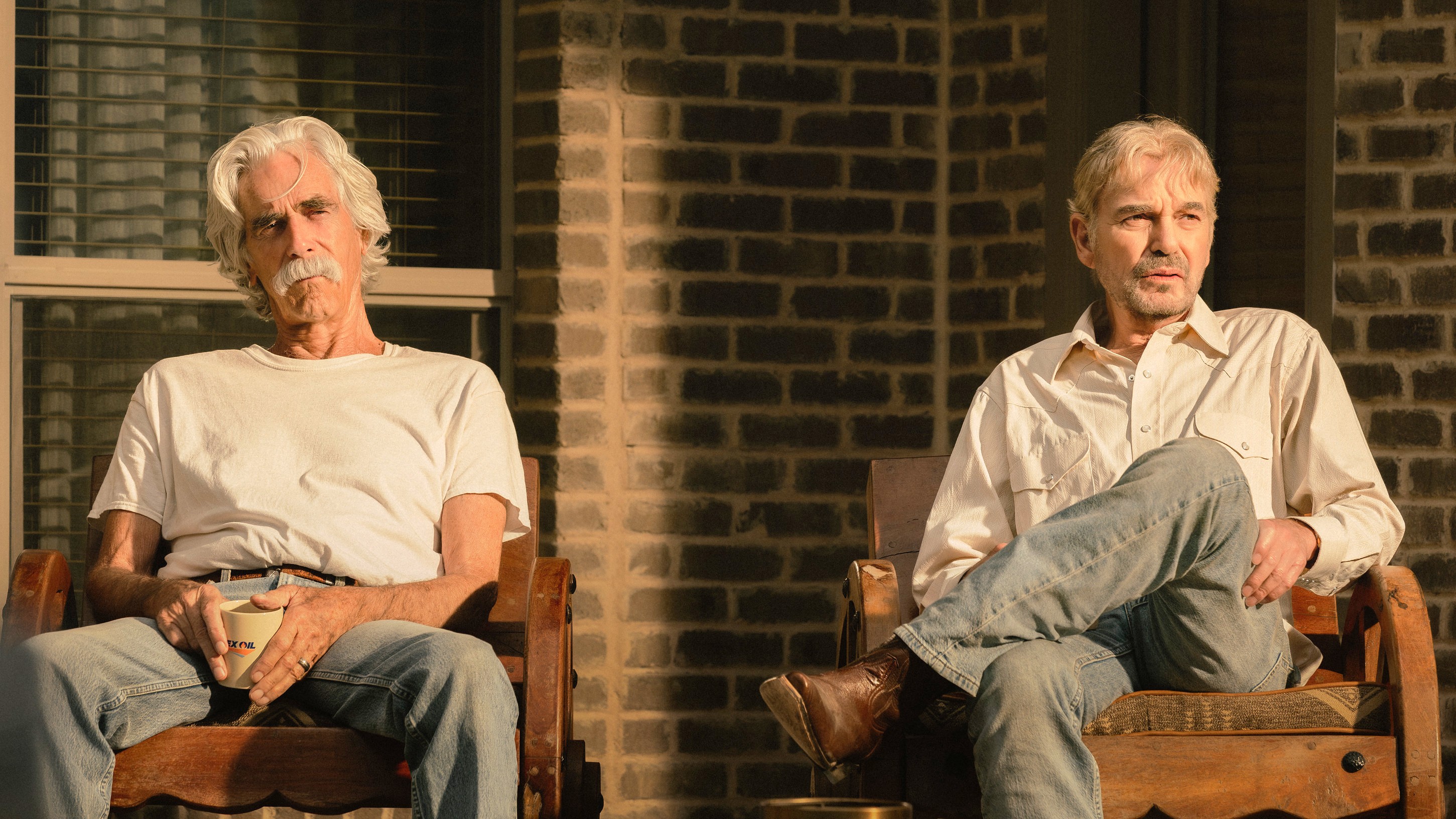Practise this type of yoga twice a week for better sleep, says new study
But there's a catch
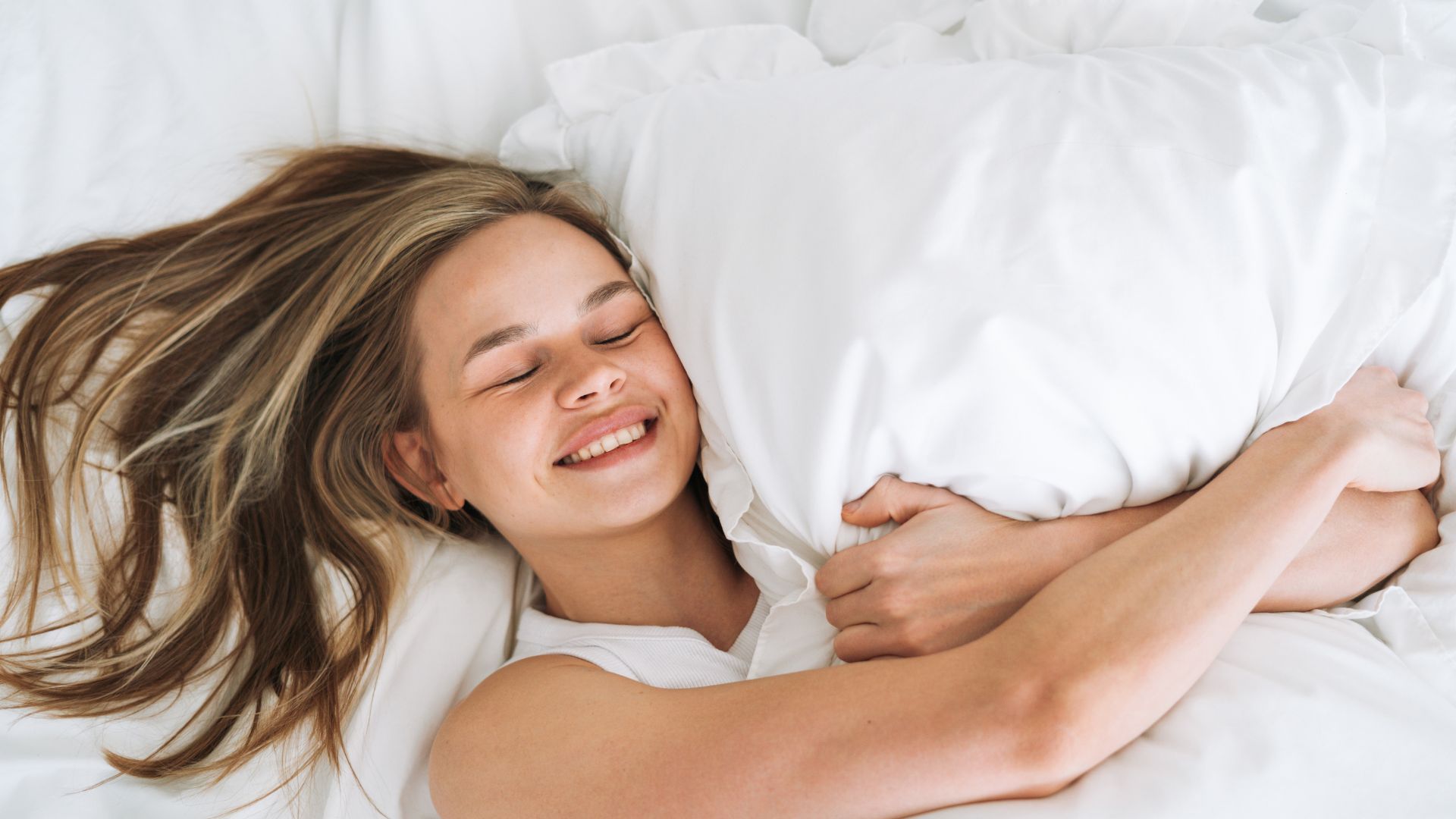
If you experience issues with your sleep, such as insomnia, regular awakenings or other sleep disorders, you may have considered exercise as a tool to help (and if you haven't, there's plenty of evidence that it can improve sleep).
But what kind of physical activity is best for sleep? And how much of it you should be doing?
A new study has answered these questions and more. Looking at the impact of exercise on people with sleep disturbances, the researchers found that practicing yoga just twice a week may help improve the quality of your rest.
However, there's a catch. We're looking in more detail at the study findings and providing some other expert approved tips on how you can improve your sleep.
Key takeaways
- Researchers analyzed 30 trials to find out which type of exercise best improved sleep for people with sleep disorders
- They also ranked factors like intensity, period, frequency and duration
- Their results showed that practicing high-intensity yoga, twice a week for 30 minutes, over 8-10 weeks, was best for improving sleep
A new study published in the journal Sleep and Biological Rhythms looked at the effects of types of exercise on sleep quality for people who experience sleep disorders, as well as factors including intensity, period, frequency and duration.
The researchers analyzed 30 trials which included a total of 2,576 participants, and first ranked which form of exercise had the greatest impact on improving sleep quality (compared to no exercise).
Yoga ranked number one, closely followed by walking. Next were resistance exercise, combined exercise, dance, traditional chinese exercise and lastly, aerobic exercise.
Then they ranked how other variables; frequency, intensity, different exercise periods and different exercise durations affected the sleep quality of people with sleep disturbances.
Get instant access to breaking news, the hottest reviews, great deals and helpful tips.
Based on this, they concluded that "high-intensity yoga, twice a week, with a duration of ≤ 30 min, and lasting 8–10 weeks, has the best effect on improving the sleep quality of people with sleep disorders."
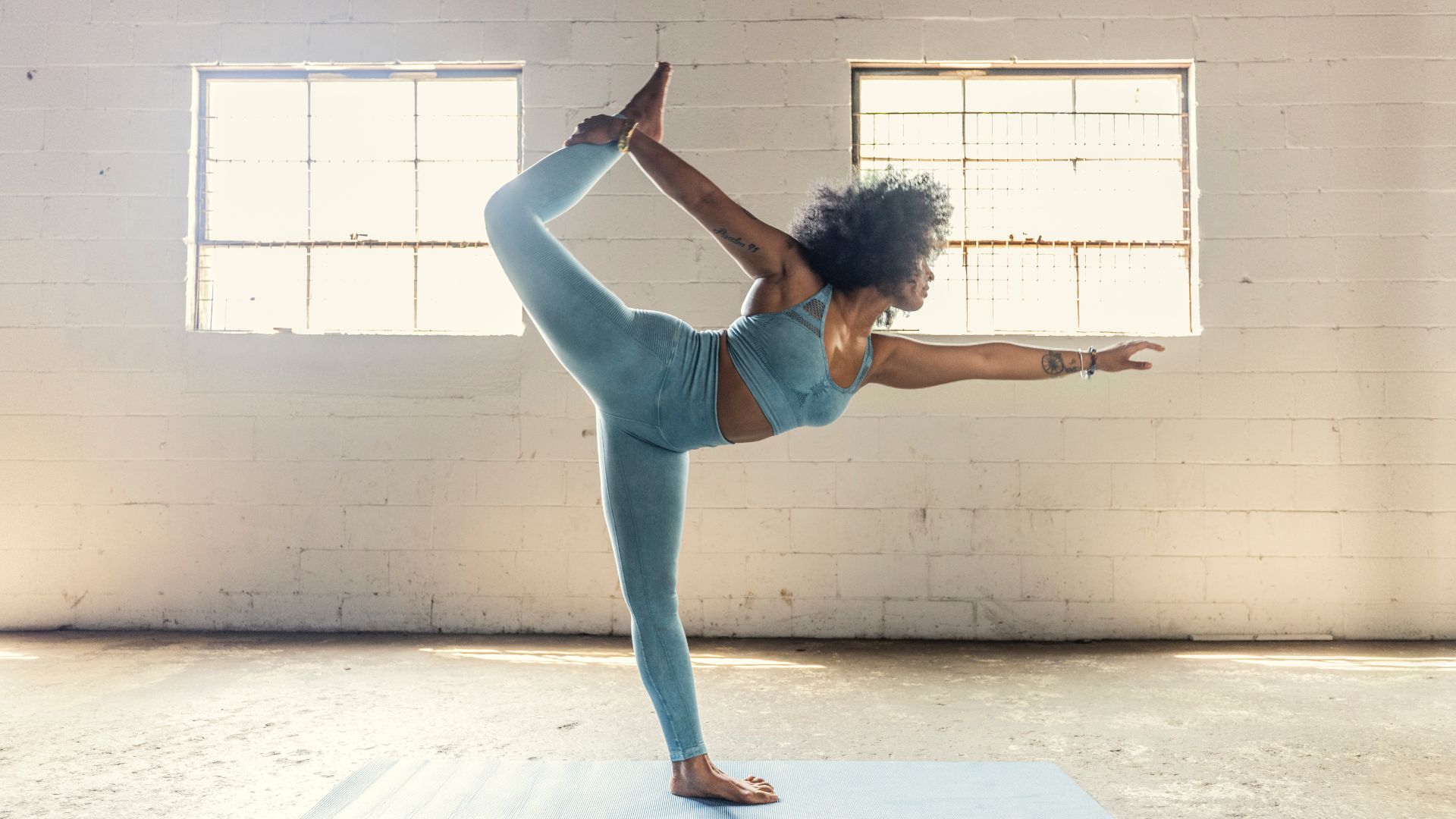
However, the study authors themselves acknowledge that their results are at odds with existing research showing that aerobic exercise provides the best outcomes in terms of improving sleep quality of those who experience sleep disturbances.
When looking at why yoga may have such a positive impact on sleep, the study authors noted previous research, including studies that shows yoga can promote brain waves related to deep sleep.
They also pointed to research that shows breath control in yoga can activate the parasympathetic nervous system, and that this effect “is accompanied by a decrease in heart rate and blood pressure, promoting the body to enter a state of deep relaxation, thereby significantly enhancing sleep quality.”
Despite their findings, the researchers did note that “further, high-quality research is needed to confirm these findings due to the limited studies included.”
How can yoga help us sleep?
The evidence that yoga can have a positive impact on sleep is compelling. Along with the results of this latest study, and the research the authors of it pointed to, another review published this year found that yoga can increase sleep duration by as much as 110 minutes.
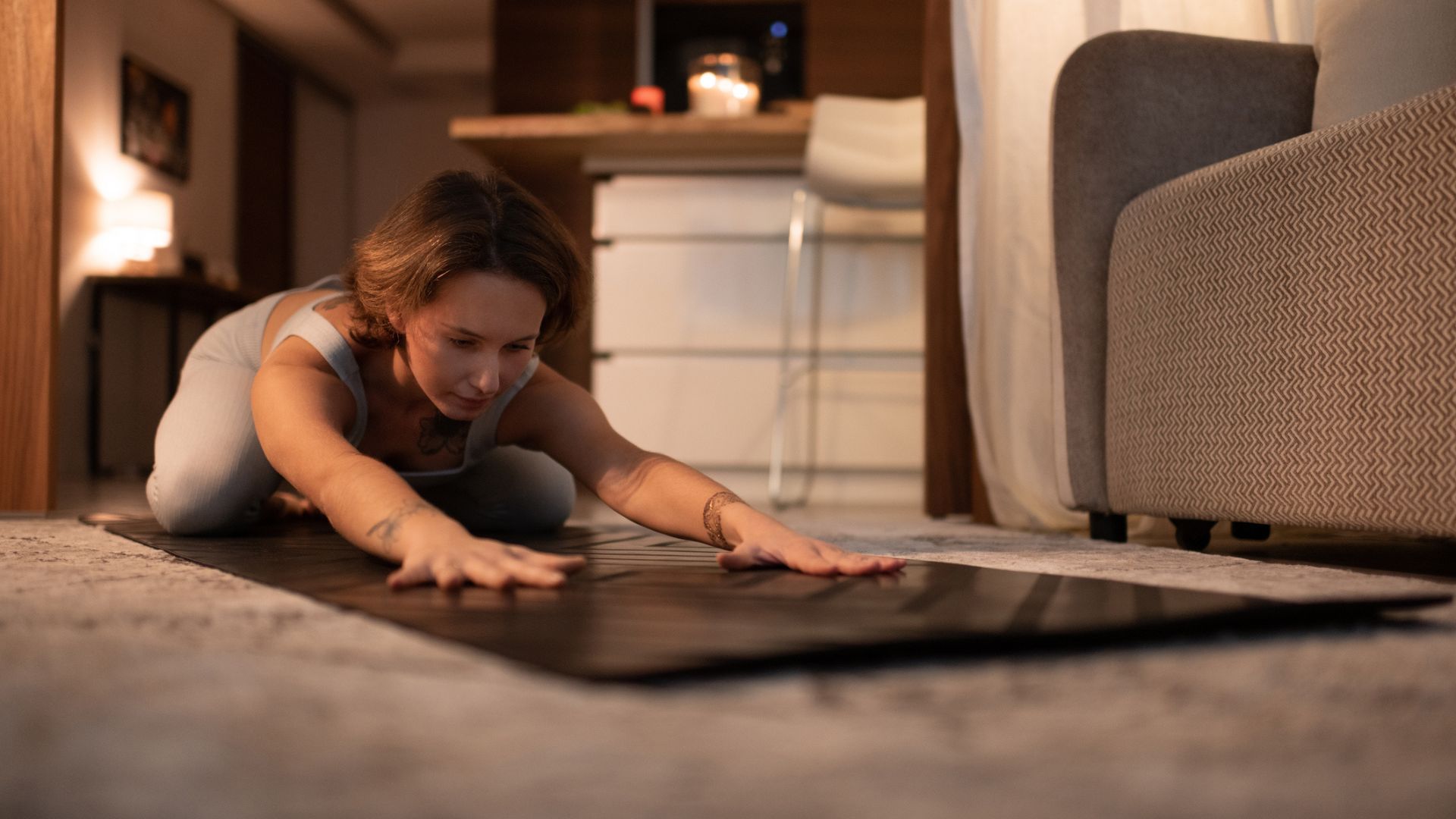
"Yoga helps sleep in a few different ways. The physical stretches release muscle tension, the breathing slows down the nervous system, and the mindfulness side helps quiet a busy mind," says Dr. Raj Dasgupta, Chief Medical Advisor for Garage Gym Reviews.
"All of that together creates the right conditions for the body to rest,"
Dr. Dasgupta explains that high-intensity yoga may help those with sleep disturbances because it "is structured and demanding enough to use up energy, but it still emphasizes focus and controlled breathing."
"That combination can help people feel both physically satisfied and mentally calm, which is exactly what you want if sleep doesn’t come easily."
So, what's the catch?
While this is all positive, the catch is that timing of such a workout could actually have a detrimental impact on your night's rest.
A recent study from researchers at Monash University, which analyzed sleep and exercise data from 14,689 active people, showed that intense exercise too close to bedtime can decrease the quality of your sleep, make it trickier to fall asleep in the first place, and can lower your sleep duration.
We asked Dr. Dasgupta why high intensity exercise generally isn't recommend close to sleep.
"The main issue is stimulation," he explains. "Intense workouts raise your heart rate, body temperature, and adrenaline, and those signals tell your body to stay alert. If you finish too close to bedtime, your system just isn’t ready to shut down."
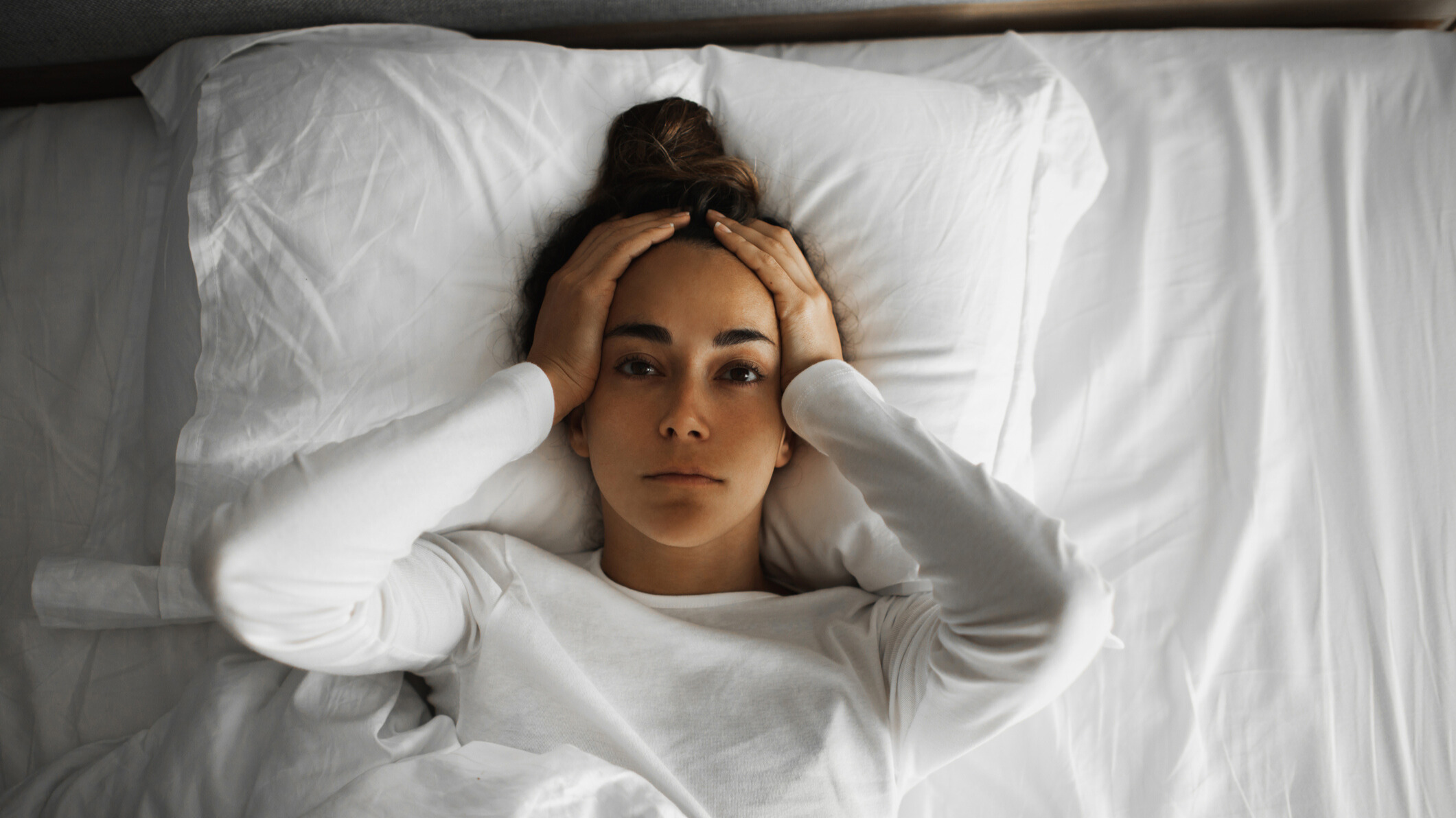
When is the best time to practice high-intensity yoga for better sleep
So what's the best time of day to do your twice-weekly, 30 minute high intensity yoga sessions?
"I’d suggest late afternoon or early evening, maybe three to four hours before bed. That way you get the stress relief and energy release without interfering with your ability to wind down at night," says Dr. Dasgupta.
His advice closely aligns with the Monash University study above, in which the researchers concluded that exercise of any intensity completed 4 hours before bedtime wouldn't impact sleep.
Other expert-approved ways to get better sleep
We asked Dr. Dasgupta for other tips, in addition to exercise, that can help you sleep better.
Maintaining a regular sleep schedule
Dr. Dasgupta advises "keeping a consistent sleep schedule," which is something we're also fans of at Tom's Guide.
Sticking to the same times for going to sleep and waking up throughout the week is a simple way to help regulate your internal body clock, or circadian rhythm.
Because our circadian rhythm controls our sleep-wake cycles, this essentially means you'll be releasing hormones associated with sleep, such as melatonin, at the right time in the evening, and cortisol, which helps us feel awake and alert, at the correct time the next morning.
In fact, our Sleep Features Editor credits sticking to a consistent sleep schedule for maintaining a sleep score in the 90s, which she is able to check daily thanks to a sleep tracking ring she wears.
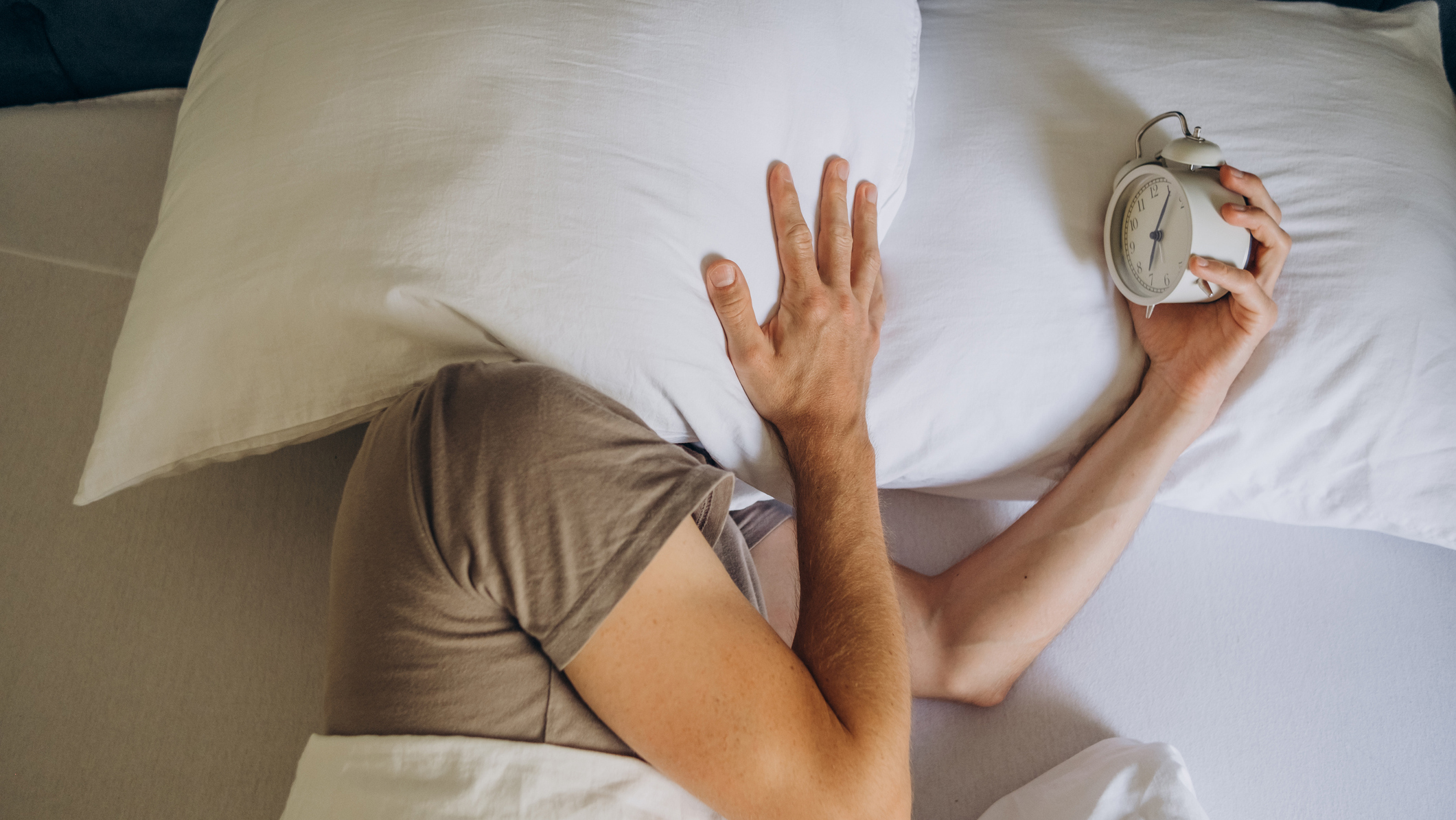
Avoid caffeine too late in the day
It's tempting to have 'just one more' coffee if you're experiencing an energy slump later in the day, but that late afternoon cup of joe might be stopping you from sleeping well at night.
Another tip from Dr. Dasgupta is "limiting caffeine later in the day," and it's sound advice. The half-life of caffeine is generally around five hours for healthy adults, but it can be as much as 12 hours.
Either way, it means that caffeine is still going to be in your system long after you've experienced the energy boost from a 4.30pm latte, and can disrupt your sleep.
Stopping any caffeine intake around 2pm or, as generally advised by experts, eight hours before you go to sleep, should help to avoid this. And it's worth remembering that caffeine isn't limited to coffee, it's also present in many sodas, energy drinks, chocolate and some teas. If in doubt, check the label!
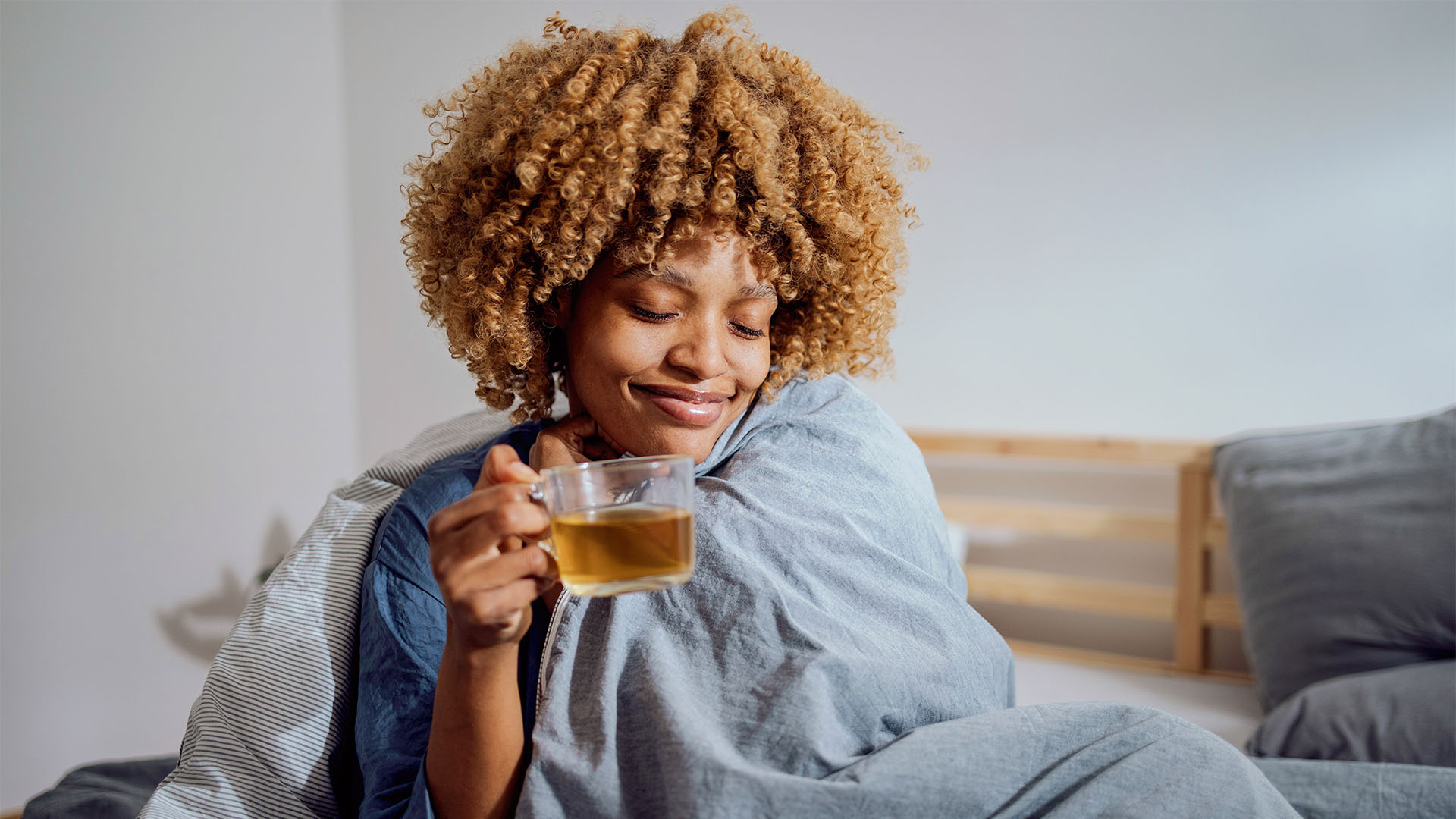
Making sure your bedroom is optimized for sleep
Creating a space that is conducive to sleep is a key part of good sleep hygiene, and Dr. Dasgupta advises "making your bedroom cool, dark, and quiet."
For most people, ensuring the room you sleep in is kept at around 16-19C (or 60-67F) should mean its comfortably cool for your night's rest.
Light exposure supresses melatonin production, so limiting how much infiltrates your sleep space with blackout curtains or blinds can help. Alternatively ,you could try a sleep mask (read about the one approved by pop sensation Sabrina Carpenter here).
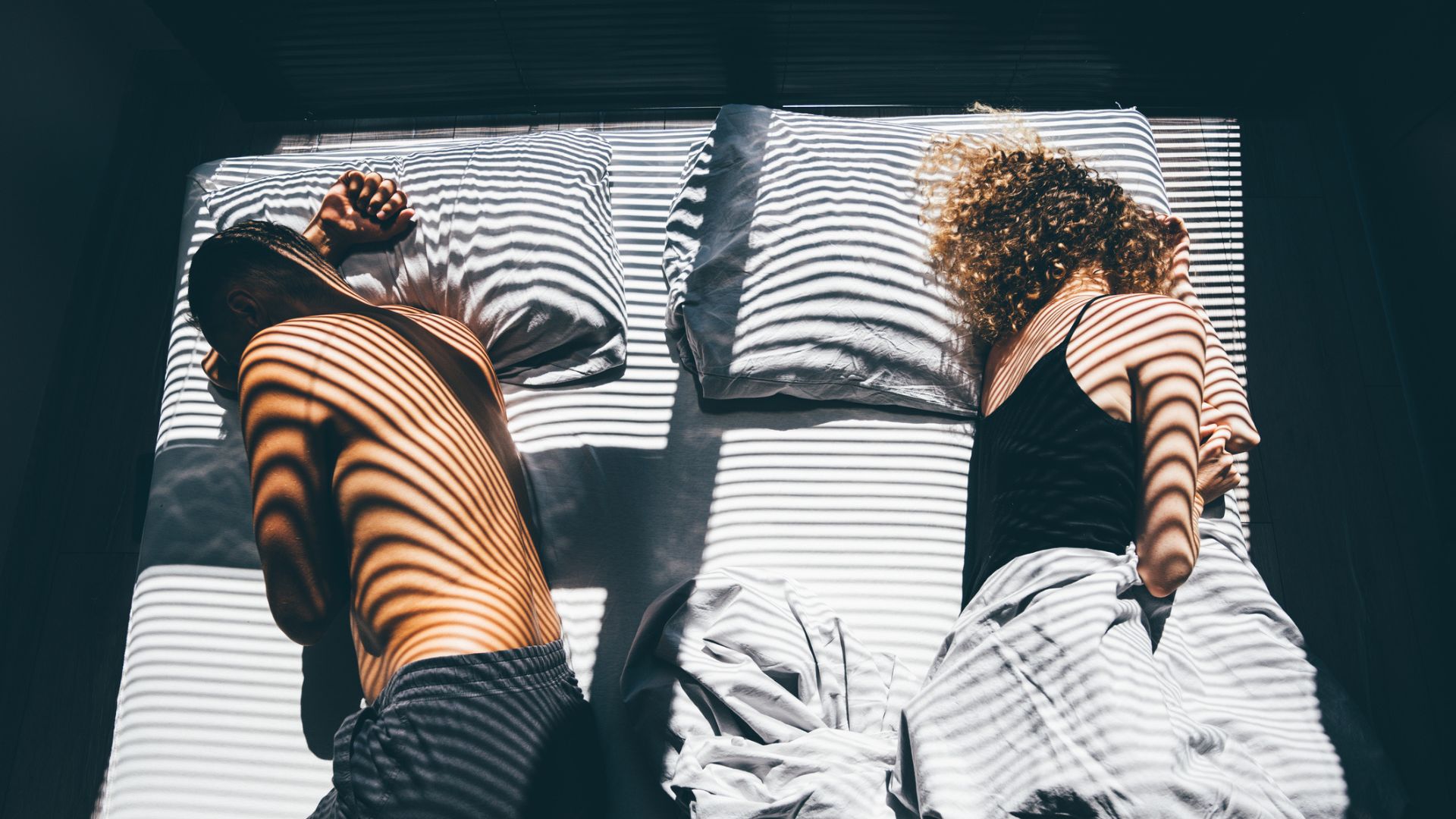
Create a nighttime routine
"Simple wind-down routines like reading, stretching, or journaling can also signal to your body that it’s time to rest," says Dr. Dasgupta.
A nighttime routine doesn't mean you've stepped back into childhood, it's actually a practice that allows adults to send cues to their bodies and brains that sleep is on the cards.
As well as the activities Dr. Dasgupta notes, you could include listening to calming music, taking a warm bath, or drinking herbal tea. It really depends on what you personally find relaxing, the only important part is to practice it consistently and aim to follow the steps of your routine in the same order each night.
But before you decide on yours, make sure you first check out the 5 biggest nighttime routine mistakes that are ruining your sleep, as shared by sleep experts.
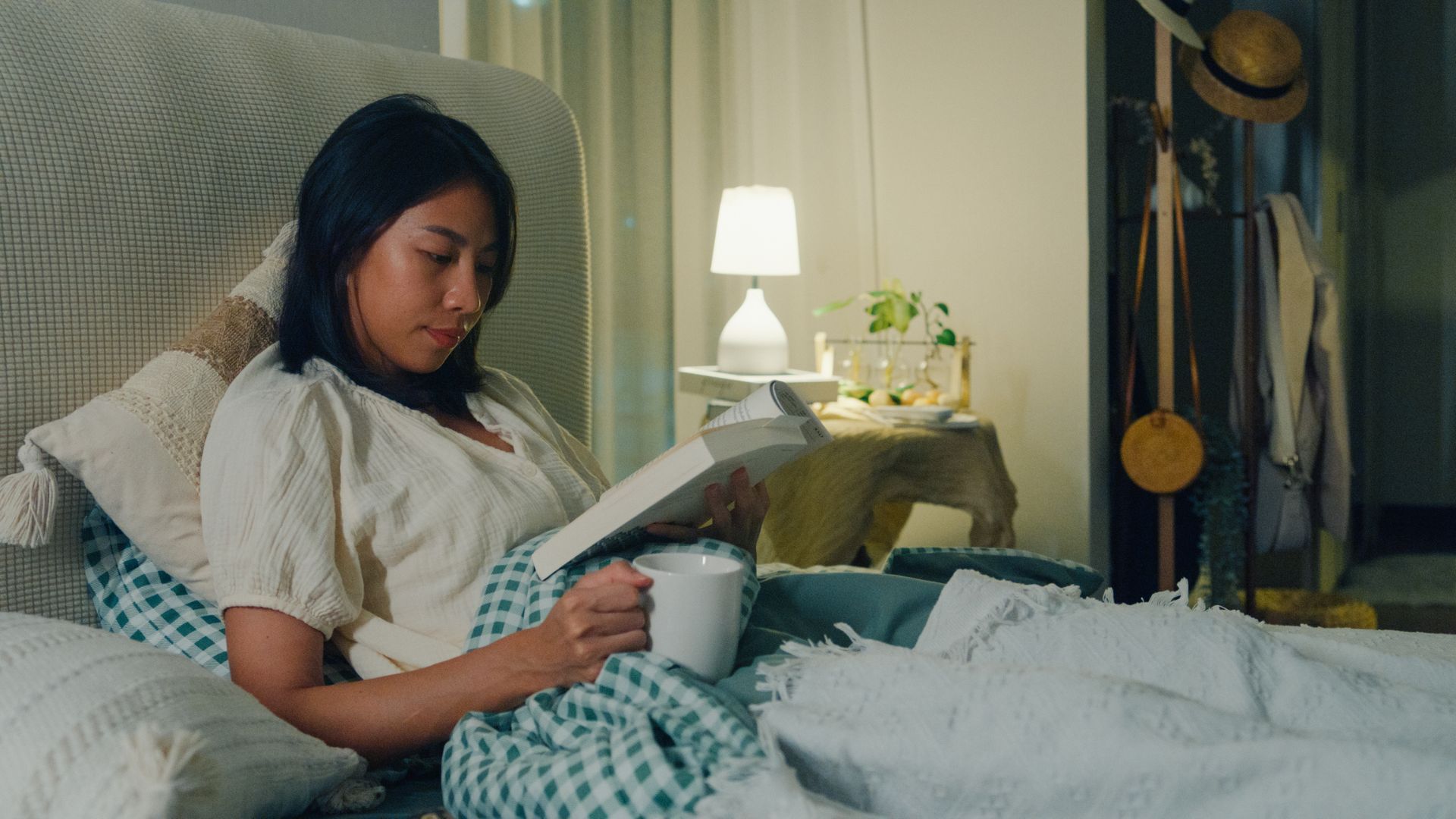
Jenny Haward is a U.K. based freelance journalist and editor with more than 15 years of experience in digital and print media. Her work has appeared in PEOPLE, Newsweek, Huffpost, Stylist, ELLE, The Sydney Morning Herald and more. Jenny specializes in health, wellness and lifestyle, taking a particular interest in sleep.
You must confirm your public display name before commenting
Please logout and then login again, you will then be prompted to enter your display name.
 Club Benefits
Club Benefits





